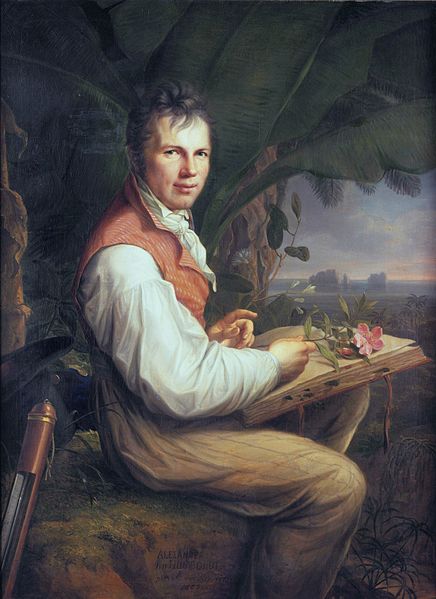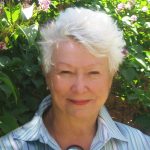» Poetry
Announcing the 2022 Humboldt Prize Winner & Runners-Up
The Florida Review is pleased to announce the winner and runners-up for the third annual Humboldt Poetry Prize. The Prize, which is funded by an anonymous donor in honor of Prussian naturalist Alexander von Humboldt (1769-1859), recognizes the best poems with an environmental focus published in the previous year in The Florida Review and on Aquifer: The Florida Review Online. The winner receives an award of $500, and each runner-up $250.

This year’s winner and runners-up are:
- Winner: Zoë Fay-Stindt for “Fall in Languedoc” (Aquifer: The Florida Review Online, March 2022)
- Runner-Up: Madelyn Garner for “Call and Response” (TFR 46.2, Fall 2022)
- Runner-Up: Cole W. Williams for “Sunset” (TFR 46.2, Fall 2022)
- Honorable Mention: Zoë Fay-Stindt for “A Robin at the Bus Station” (Aquifer: The Florida Review Online, March 2022)
The winner and honorable mention will be reprinted in The Florida Review 47.1, Spring/Summer 2023; both runners-up will be republished on Aquifer: The Florida Review online this spring. David Keplinger served as the final judge for this year’s Prize.
David Keplinger’s nine poetry books include Ice (Milkweed Editions, 2023), The World to Come (Conduit Books and Ephemera, 2021), and Another City (Milkweed Editions, 2018). He has been awarded the 2020 Emily Dickinson Award from the Poetry Society of America, the 2019 UNT Rilke Prize, two artist fellowships from the NEA (poetry and literary translation), The 2006 Colorado Book Award, and Mary Oliver selected his first book, The Rose Inside, for the 1999 T.S. Eliot Award. In 2022 he was named American University’s Teacher/Scholar of the Year.
Read Keplinger’s judge citations on each poem below.
 Winner: “Fall in Languedoc” by Zoë Fay-Stindt
Winner: “Fall in Languedoc” by Zoë Fay-Stindt
Speaking from the grape fields of Languedoc, this voice deftly traces the wreckage of the Fukushima catastrophe, its tons of radioactive ocean water now threatened to be released back into the sea. Turning all that water into wine, the poet asks, “what would/a hundred tons of our juice look like; a thousand?” But what is most evocative about this poem is its quality of interstitial hunger, between foxes stalking workers, fleas that eat the foxes, boars that eat the fields, and humans who slice the boars “neatly into strips.” Similarly, the rich language and imagery evokes with compassion the strange, brambled experience of a world bent on devouring and being devoured.
Runner-up: “Call and Response” by Madelyn Garner
In this delicately achieved lyric, like the prayer it references, rife with “pollen/furring the bees,” and the “backyard’s/green pulpit,” the natural world is imbued with sacred qualities, though the speaker’s calls to save the unnamed son are not answered. Nevertheless, the poem honors the tangled music of this realm, offering the song of the wood-thrush, “flute-like,” as embodiment of this grief.
 Runner-up: “Sunset” by Cole W. Williams
Runner-up: “Sunset” by Cole W. Williams
On a miserable excursion through mangrove canals, rife with crabs and spiders, what seems a resistant young person sits with hands folded as an older figure tries to amaze and awaken them; and they do; they do awaken to the worth of this moment with its boars crossing the shore “oblivious of us” in that instant of marvelous connection with the natural world.
Honorable Mention: “A Robin at the Bus Station” by Zoë Fay-Stindt
Here the writer seeks, with direct speech and delicate imagery, to describe the labor of honoring lives: “it’s big work.” A small funeral for a robin leads later to the sound of a weeping stranger on video chat on a crowded bus, overheard by those travelers for the long journey. Each turn of this lovely narrative slowly opens the heart to the “beds and soft spaces” one being may build for another.
Congratulations to the winner and runners-up! Read more info about the prize and its namesake below.
The Humboldt Poetry Prize
Each year, one winner and two runners-up will be chosen from work published in The Florida Review and Aquifer: The Florida Review Online during the previous calendar year. Candidates will be identified from all categories of works published—those that stem from general and contest submissions, as well as from solicited work that we have published.
Criteria set for the prize include:
- Probing the capabilities and needs of wild animals and challenging their exploitation;
- Exploring wild animal/human relationships;
- Experimenting with and imagining the subjective life of wild animals;
- Interrogating the poetic use of animals simply as metaphors;
- Investigating natural processes, biospheres, and their complexity; and/or
- Pondering awe in the face of nature and/or how to inspire such awe.
Each winner will receive an award of $500; each runner-up an award of $250. In addition, with each poet’s permission (or that of any subsequent book publisher), the poem will be reprinted. Works originally published in Aquifer will be reprinted in the print Florida Review, and vice versa.
Alexander von Humboldt
The new prize commemorates the legacy of the visionary German naturalist and explorer Alexander von Humboldt (1769-1859). Humboldt’s fascination with natural processes started in childhood, when he earned the nickname “the little apothecary” and continued throughout a fifty-year career as a famous public figure, in which he investigated the fields of botany, minerology, geology, isothermal mapping, meteorology, and geodetic and geomagnetic measurement. During the Napoleonic Wars, he set off to explore Central and South America and, with a French botanist, covered 6,000 miles by foot, horseback, and canoe, studying astronomy, topography, flora and fauna, and the Earth’s geomagnetic field and barometric pressure, as well as mapping 1,700 miles of the Orinoco River. They measured the river phenomenon now known as the Humboldt (or Peru) Current.
Humboldt also succeeded in marrying science and aesthetics, promoting the belief that every element of nature is dynamic and interconnected, and that these forces should be apprehended with both head and heart. In thirty volumes published during his lifetime—and filled with detailed illustrations and lyrical descriptions—Humboldt taught that nature, properly understood, stimulates the imagination as well as the intellect and is a source of beauty and consolation. His close friend Goethe noted that “with an aesthetic breeze” Humboldt lit science in a “bright flame.”
As the first scientist to identify climate zones and view the Earth’s ecology as interconnected and ever-changing, Humboldt anticipated the deleterious impact on wildlife and the biosphere, and he frequently decried the careless environmental destruction of Europe in the colonies. Even as his fame and wealth diminished later in life, Humboldt assisted many young scientists in embarking on their careers. References to his ideas appear hundreds of times in Charles Darwin’s writings, and he profoundly influenced John Muir and generations of conservationists and nature writers.
We at The Florida Review hope to continue to encourage those writers concerned with the human relationship with our planet and with the beauty and power inherent in the Earth in the tradition of the writing of Alexander von Humboldt.

